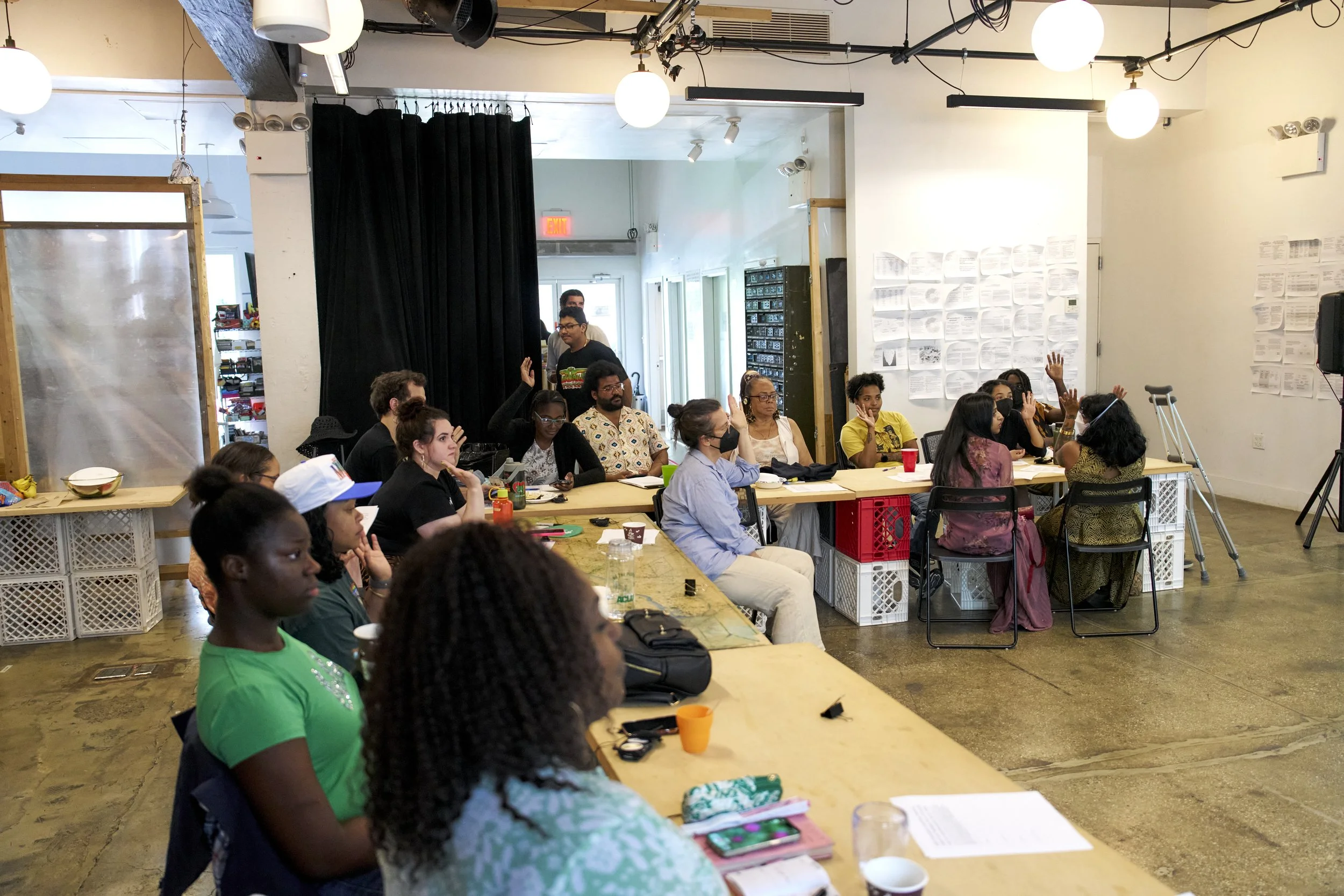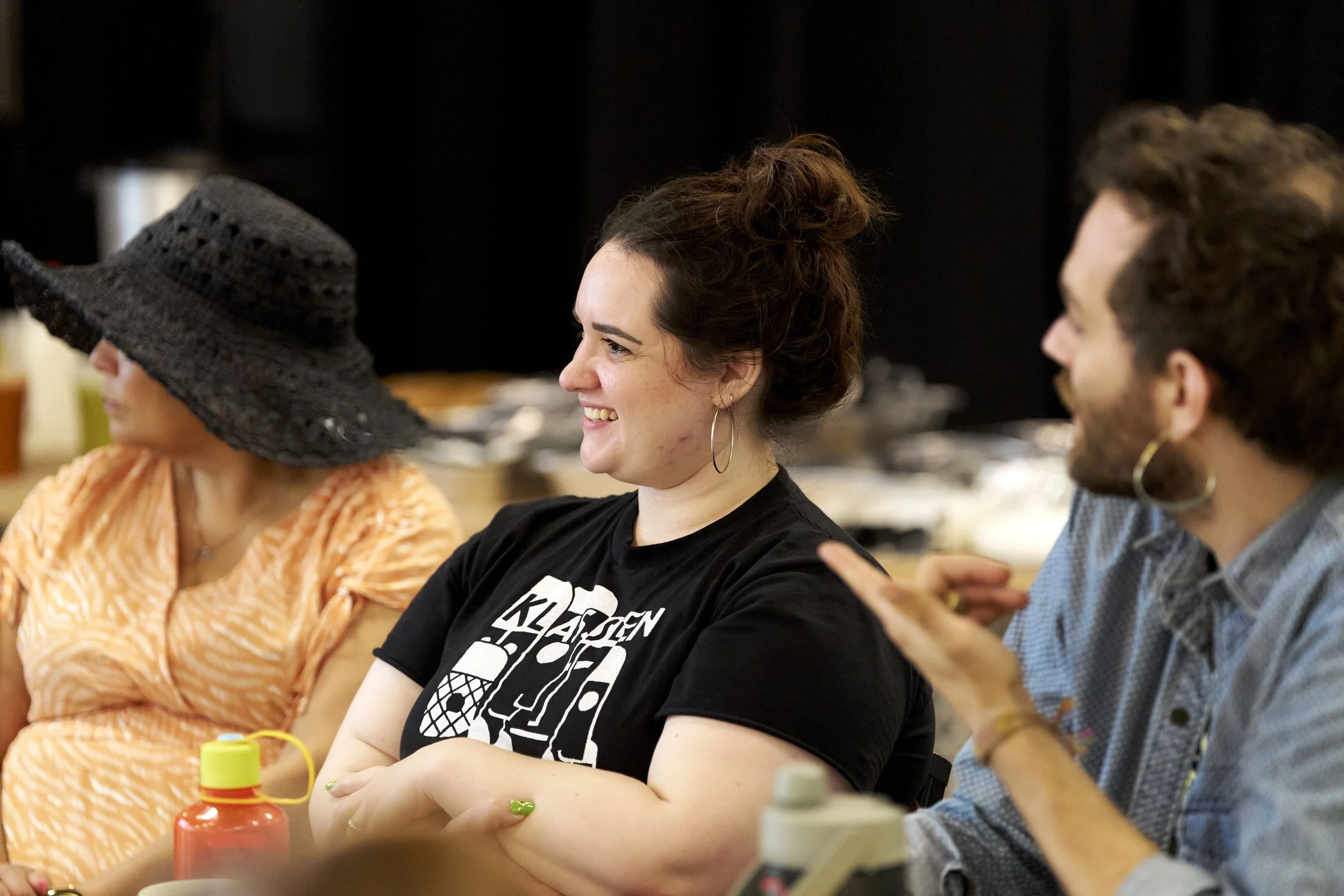we Refreshed our curriculum!
Hey New York!
For our first blog entry, we’re excited to share highlights from our flagship program, the Cooperative Leadership Intensive (CLI).
We launched CLI back in 2018, and after a brief break during COVID, we spent the last year updating, refreshing and teaching our new curriculum. Over 6 months, our curriculum introduces the features of a solidarity economy and trains participants how to organize and coordinate to get there. We’re proud to share how our program has evolved and grown in dialogue with participant feedback:
More Popular Education, Less Lecture:
In 2025, we deepened our emphasis on popular education, incorporating more participatory learning methods and member-led sessions. This shift ensures the curriculum is rooted in lived experience and community dialogue, and increased program attendance to over 90% across 14 sessions.
Increased Emphasis on Conflict Resilience:
Based on movement trends and demand, we created and integrated a new session, Conflict Resilience 101, piloted this past March by CEANYC consultant Libbie Cohn. This 3-hour participatory workshop equips our members with concepts and skills to navigate conflict and build healthy, durable relationships for long-term cooperation. We will be expanding and integrating this material into our general member onboarding in the Fall of 2025.Sector Adaptation & Inclusion:
CLI is evolving to meet the needs of additional solidarity economy sectors, including new participants like Flatbush Tool Library and Tompkins Food Distro. In our multiple “Sector Spotlights” throughout the Intensive, sector leaders describe the approaches, achievements and current challenges of their own sectors, tailoring their presentations to build cross-sector collaboration and build on each others’ lessons and work.Expanded Participant Stipends
With the knowledge that many CLI participants take time out of their working lives to join our workshops, we offer stipends on a needs-basis to those who commit to attending the majority of the sessions. Based on an analysis of NYC cost of living in our priority neighborhoods, we increased the total stipend from $1,200 in 2023 to $1,800 in 2025. Nearly half of the 22-member cohort applied for and received this stipend in 2025.
In our next entry, we’ll introduce you to our 2025 graduates and highlight some of the amazing work they are doing around the city.





